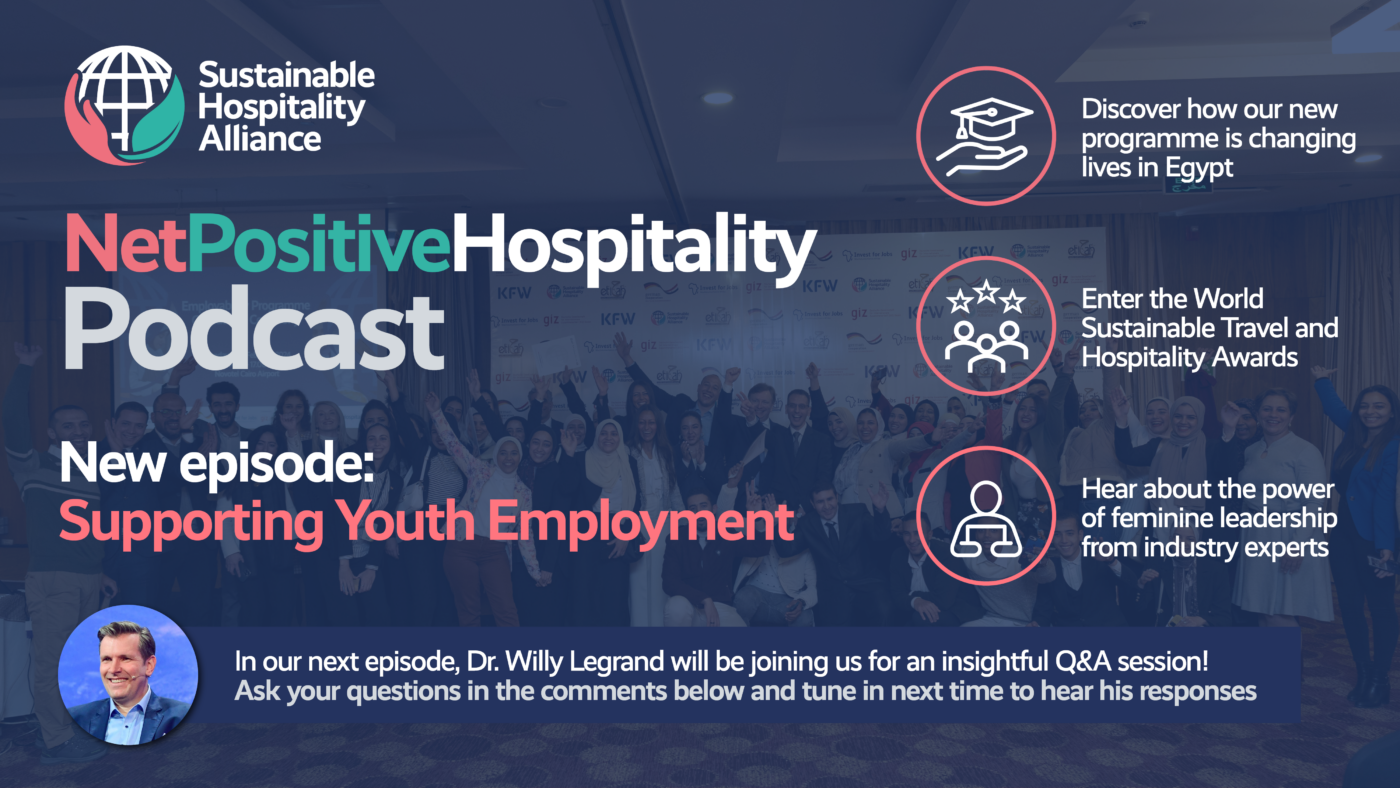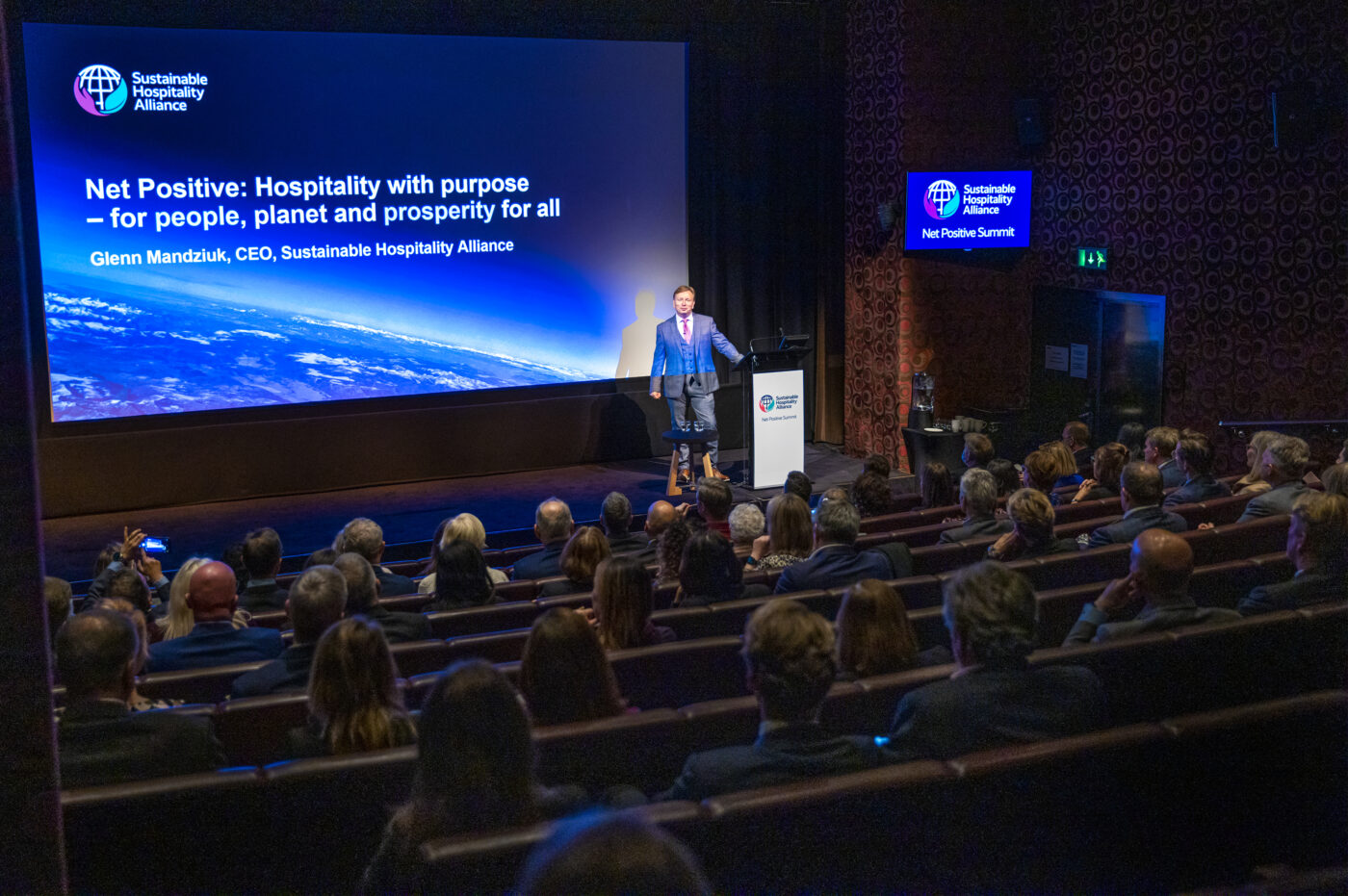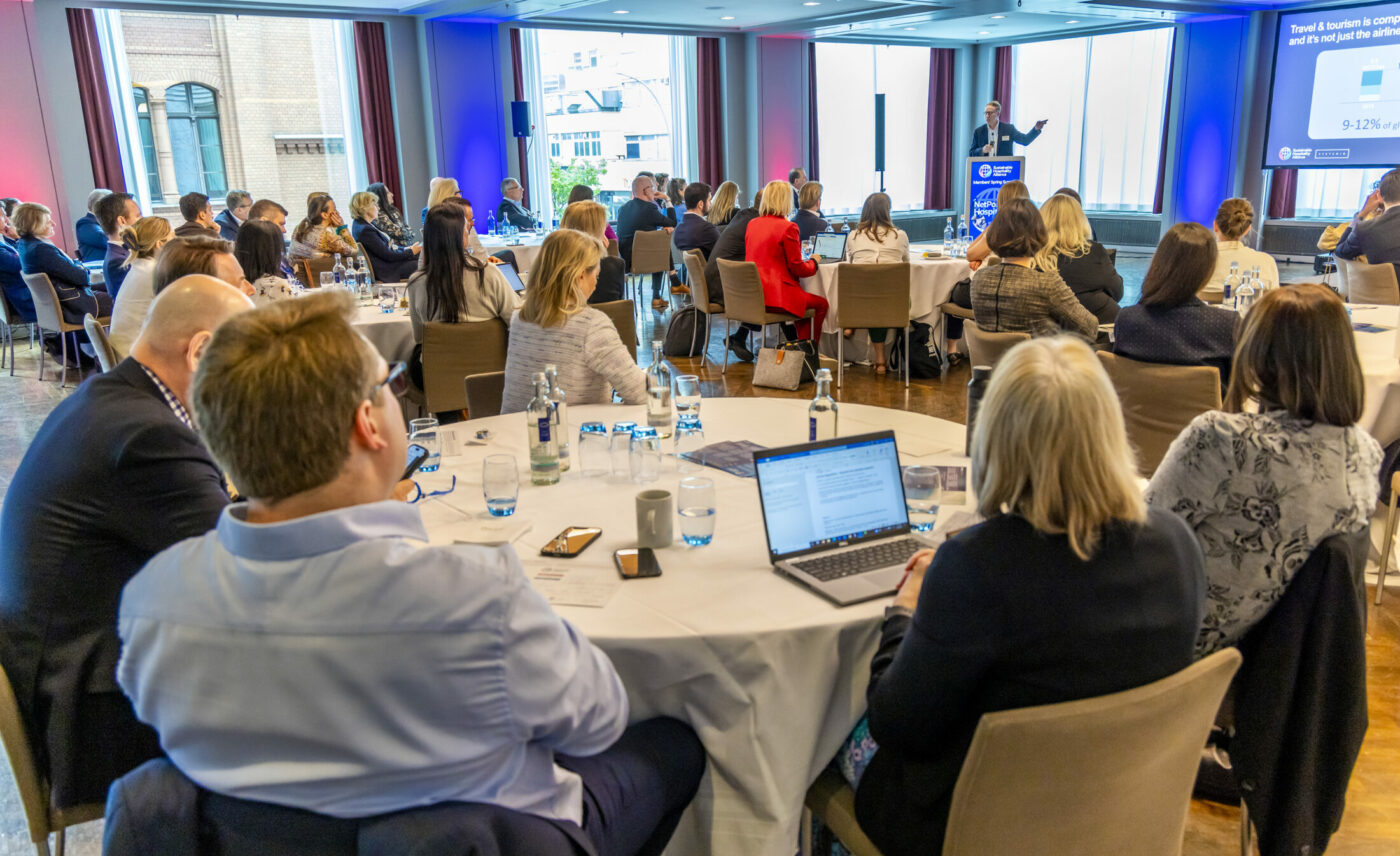2022 marked a turning point for sustainability. Public awareness about sustainability issues grew rapidly, spurred by the increasingly visible effects of climate change across the world, including droughts, wildfires, and floods,1 and the social issues which have come to light surrounding events such as the World Cup. Individuals, governments, and businesses are increasingly recognising that now is the time to act on sustainability.
The hospitality sector must lead the way in demonstrating how businesses can be a force for good in this effort. Many hotels have already made great progress, with a recent study suggesting that emissions from travel and tourism might finally be decoupling from economic growth.2 But more needs to be done if we are to reach the ambition of thriving communities and a sustainable planet.
What can your hotel do in 2023?
With global energy prices at an all-time high, a rising cost of living crisis, and staff shortages forcing many hotels to operate at partial capacity, sustainability can feel like an overwhelming and expensive endeavour. But as hospitality businesses are increasingly likely to face climate-related risks, and also depend on guests, employees, and the unique destinations in which they are based – our industry’s very survival depends on embracing and embedding sustainability.3
It’s not too late for your hotel to start on its sustainability journey, but it can be hard to know where to begin. At the Sustainable Hospitality Alliance, we have created a useful guide for how to kick-start your sustainability action in 2023.
1. Understand the issues
The first step is to understand what the issues are, and how they relate to your hotel. From protecting human rights, supporting displaced people, ensuring diversity and inclusion, and enabling skill development for job seekers and employees, to taking action on carbon emissions, water usage, waste management, and biodiversity preservation – there are a great deal of areas that must be addressed. However, rather than trying to tackle every element at once, you may want to start by choosing one or two key areas to focus on, based on the issues which are most prevalent for your hotel or local area. For example, water scarcity may be a considerable issue, or there may be high levels of unemployment in the local community.
2. Understand your impacts
When taking action, it’s important to keep track of the impact of the actions you are taking, to identify what is working, and where further focus is needed. An important first step is to take stock of your current impacts, so you can set a baseline to monitor progress and demonstrate that your sustainability actions are paying off.
In collaboration with expert partners, the Alliance has created a number of tools and initiatives to enable you to measure your environmental impact – these are available via the links at the bottom of this article. When looking to assess social impacts, we recommend exploring our useful human rights factsheets and reading up on our employability programme, to consider how you could further support job seekers and employees. You may also find it beneficial to start with a simple staff survey to gather useful insight.
3. Set meaningful objectives
Once you have a baseline, it’s time to set some objectives for what you hope to achieve. These should be ambitious, but achievable, and designed to be measured from the baseline you have set.
Make sure to also set interim milestones along the way, so you can be sure you are on track to meet the final objective (or, if not, adjust your strategy accordingly). For example, if your target is to reduce water consumption by 30% by 2030, you may set an interim target of 10% by 2025.
4. Make plans and take action
Next, create a robust strategy to guide you along your journey. This can be as simple as a basic plan with a few clear goals, and key activities and responsibilities to achieve them.
When developing your strategy, here are a few things to consider:
- Who will be responsible for carrying out different actions? You may need to create additional roles, or update job descriptions to include new responsibilities.
- What funding is available? Whilst some actions will be low/no cost or deliver immediate returns on investment, others may require larger investments or have longer payback periods. You may need to start small to convince stakeholders of the financial benefits, before securing larger funding.
- How will you get the whole company involved? Sustainability strategies will only be successful if the whole team is engaged and understands the motivation behind the strategy. This may require additional training or team workshops.
- Can you get senior buy-in? The most successful strategies are endorsed by the CEO and other senior stakeholders, so that sustainability becomes embedded into the core operations of the company. You may want to develop a business case to present the benefits of your strategy, and ensure senior stakeholders are on board.
- How will you track your progress? Considerations include deciding who is responsible for monitoring progress, how often they should collect data, and how and where will this be recorded.
5. Communicate your ambition and progress to your employees
Your employees are the drivers of your sustainability strategy so it’s essential to keep them informed, engaged, and motivated. Internal communication about your sustainability goals and your progress towards them is crucial to keep them on board, and to hold yourself accountable to your commitments.
Keep an eye out for an upcoming factsheet with tips on how to engage your team.




